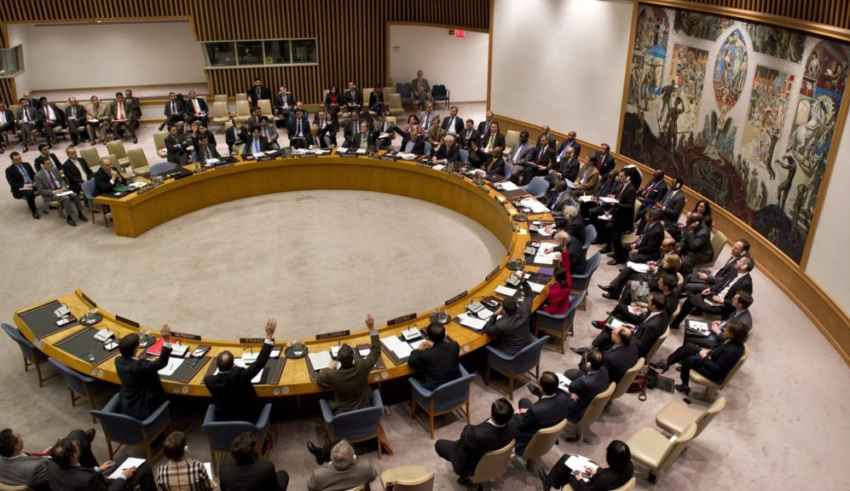
Egypt, Sudan, and Ethiopia have been at odds for more than a decade over a dam that Addis Ababa is building on the Blue Nile, the Nile River’s primary tributary. In this regard, In an indirect reference to the dispute over the Grand Ethiopian Renaissance Dam(GERD) at the sidelines of the 76th Session of the United Nations General Assembly on September 2021, Egyptian President Abdel Fattah al-Sisi stressed the importance of being serious in dealing with the construction of dams on international rivers in the absence of an agreement with downstream countries on the filling and operation mechanisms(Al-Monitor, 2021). As this issue raises crucial concern in international level, this article is aimed to focus on the role of UN Security Council.
Overview of the issue
The Nile is one of the world’s hydro political hotspots. Some commentators argue that the reason refers to the Egypt, Sudan, and Ethiopia realized that there is insufficient water to satisfy all their demands, especially considering rapid population growth in the area, and water scarcity gave rise to conflicts (Pipia,2021). Egypt, traditionally, relied heavily on a season of yearly Nile flooding, which nourished the soil and ensured a successful year for Egyptians; but, if the Nile flooded twice in one season, causing excess flooding, it would bring damage, starvation, and calamities. In this regard, the second filling of GERD was considered by Egypt as a threat to the regional peace, security, and stability in Africa (Ibid).
Generally, the arguments of the party to this tension can be explained as follow. Ethiopia claims that the $5 billion dam, which is 80 percent complete, is critical to the country’s economic development and electricity generation(Al-Monitor, 2021). Egypt, on the other hand, sees the project as a severe danger to the Nile water supply, which it relies on nearly exclusively to satisfy its freshwater demands.Egypt, where more than 6 million people work in agricultural, claims that every 1 billion cubic meters of Nile water lost will deprive 200,000 households of their primary source of income since they rely only on agriculture (Ibid).
Sudan sees some GERD benefits in arranging Blue Nile water and using the energy it produces. Nonetheless, it seeks assurances about the dam’s safe and convenient functioning in order to assure the safety of its own dams, especially Sudan’s largest, the Roseires Dam.
The two downstream states (Egypt and Sudan) demand a legally binding agreement on the filling and functioning of the GERD, as well as an effective and binding system for resolving future disputes, to end the conflict. Ethiopia, on the other hand, seeks a settlement with non-binding provisions.
The Role of Security Council in the Dispute
Under Chapters VI and VII of the UN Charter , the Security Council has the primary responsibility for the maintenance of international peace and security. Therefore, the SC has sufficient discretion to investigate any dispute, or situation which might endanger international peace. Article 34 UN charter provides that;
“The Security Council may investigate any dispute, or any situation which might lead to international friction or give rise to a dispute, in order to determine whether the continuance of the dispute or situation is likely to endanger the maintenance of international peace and security. “
Accordingly, Egypt appealed to the Security Council, citing the latter’s role in maintaining international peace and security. Egypt expected that after all efforts to reach an agreement with Ethiopia had failed, the SC would intervene in the water dispute between the two countries(Ahram online,2021).
Nevertheless, it is worth mentioning that The practice of the Security Council indicates that all substantive resolutions were adopted in relation to situations, which inherently involve military confrontations, terrorism, violence, and armed conflicts(Pipia,2021). Therefore, until now, it has never adopted any resolutions, which would acknowledge environmental crises as a threat to international peace and security.
However, it could be argued that as there is an extensive acknowledgment of environmental concerns for the global community and the SC’s indication that ecology can be a non-military source of instability, the SC has the discretion to hear and discuss environmental disputes under the procedures of collective security mechanism. In other words, such disputes would reach the threshold of being dangerous to international peace and security (Ibid).
As a result, bringing the GERD dispute to the Security Council affords it a unique prospect to acknowledge environmental disputes as a cause of international instability, constituting Chapter VI or VII measures. As a result, if the Security Council takes this line of action, it may open the door to other environmental claims, including those relating to climate change.
Bibliography
Pipia, 2021, “GERD Dispute and the Power of the Security Council to Discuss Environmental Crisis”, accessed 26 October 2021 <http://opiniojuris.org/2021/10/19/gerd-dispute-and-the-power-of-the-security-council-to-discuss-environmental-crisis/ >.
Al-Monitor, 2021 , “Egypt to take Nile dam dispute to climate change conference”, accessed 27 October 2021 <https://www.al-monitor.com/originals/2021/09/egypt-take-nile-dam-dispute-climate-change-conference#ixzz7AXEOyVFD >.
Ahram online, 2021 , “Exclusive: Egypt’s letter to UN Security Council on GERD”, accessed 27 October 2021 <https://english.ahram.org.eg/NewsContent/1/64/414085/Egypt/Politics-/Exclusive-Egypts-letter-to-UN-Security-Council-on-.aspx >.
By The European Institute for International Law and International Relations.













